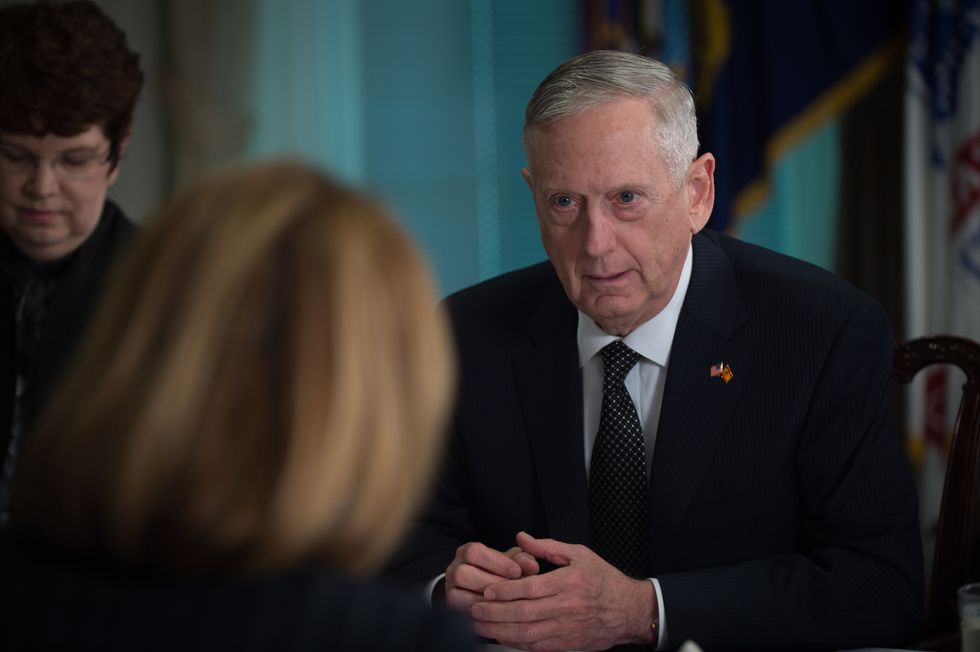Tweeting on Tuesday morning, March 13, 2018, President Trump publicly confirmed prior rumors concerning the possibility of Secretary of State Rex Tillerson's ousting, declaring CIA Director Mike Pompeo as his replacement.
Trump "thought it was the right time for the transition with the upcoming North Korea talks and various trade negotiations," a senior administration official stated, adding that Trump asked Tillerson to step aside on a Friday before. A senior White House official later clarified that Chief of Staff John Kelly told Tillerson that he would be replaced, but did not specify the timing. "We were not thinking the same," stated Trump at the press conference in which he vocally announced his decision to the press corp. "With Mike Pompeo, we have a similar thought process."
With Trump's recent firing of Tillerson, Secretary of Defense Jim Mattis lost the very person who had helped him check Donald Trump's worst foreign policy impulses during his first fourteen months in office; Mattis and Tillerson had essentially formed a united front to push back against the president on key national security issues where they believed it was necessary. In their efforts, they ensured that Trump didn't unleash the "fire and fury like the world has never seen" on North Korea, convinced him to stay in the Iran deal, and see American membership in NATO as the better alternative than not.
While it is true that Mattis has lost a vital ally in the administration, Mike Pompeo's admittance into the President's Cabinet could prove to be more beneficial to Mattis's cause than Tillerson had been. One reason is that Tillerson never connected with Trump, so Mattis had to do much of the "heavy lifting" to convince the president and other administration officials to see things their way. But Trump’s choice to replace Tillerson, current CIA Director Mike Pompeo, could prove a valuable ally for Mattis for one simple reason that sounds a little counterintuitive and ironic in a sense: He’s a Trump loyalist.
Ever since his approval by the Senate in February of 2017, Secretary Tillerson has had numerous publicized conflicts with the President. In June of that same year, for example, Trump publicly criticized Qatar as a "state sponsor of terrorism" a mere hour after Tillerson had defended the Middle Eastern state in this regard.
Three months later in May of 2017, Tillerson told the press corp present at a United Nations conference that Trump was “still considering” whether to decertify Iran’s compliance with the nuclear deal. A mere few hours earlier, Trump had, unknown to Tillerson, told reporters that he had made up his mind on the matter.
Finally, in December of 2017, Trump declined Secretary Tillerson’s efforts to open a diplomatic communication channel with North Korea against what many diplomats urged for at the time. Trump then proceeded to keep Tillerson "out of the loop" while he accepted an invitation to a highly controversial meeting with Kim Jong Un, the infamous leader of the hermit state.
Mattis, in sharp contrast, remains in rather good standings with Donald Trump. The President praised the Defense Secretary during his State of the Union address in January of 2018, stating that he was “doing a good job.” Despite the coordination with Tillerson on the majority of his stances and words of advice to the President, it seems as if Secretary Mattis's reputation remains largely untarnished. From this scenario, it can be reasonably inferred that Mattis did not truly need Tillerson to get his desired points across to Trump.
With Pompeo already having the President's ear and confidence, the upcoming Secretary of State pick could very well prove to become a powerful ally to Mattis, especially in the cases where the two can reach a unified stance.
While we can only speculate for now what is to happen in the months following Pompeo's arrival into his new office, one key change could prove disastrous for Mattis. In the event that Pompeo sides with Trump on several key foreign issues such as utilizing a forceful stance in regards to North Korea, ending the Iran deal, and leaving the North Atlantic Treaty Organization, Mattis could ultimately lose his influence over the President.
On the contrast, if Pompeo crucially decides to be a constraining influence on the President and develops a united front with Mattis, the Defense Secretary will have gained a powerful new ally, with his words carrying even more weight and prestige in the future.
With the staff at the White House seemingly changing by the minute, only time will tell whether Mike Pompeo will prove to be a powerful ally or a crippling enemy to Secretary of Defense, Jim Mattis, and his crusade to check the more radical impulses of the President.

















